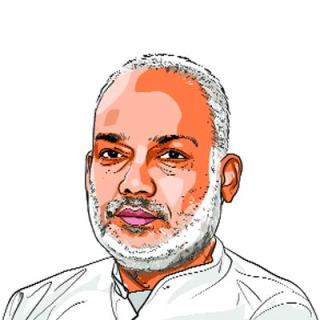Quotas for economically weaker sections will help de-stigmatise reservation
From Mayawati to Ram Vilas Paswan to Ramdas Athawale this bill has united the voices from within the community. There is a reason for this. Dalit leadership in the country is essentially the leadership of and by the poor.

The debate on reservation reminds me of an old fable in which a group of blind men approach an elephant. One of them, after touching the animal’s trunk, thinks it to be snake, the person who touches the elephant’s body believes it is a wall, and so on. Reservation is likewise interpreted largely on the basis of one’s predispositions and experiences. For a member of a Scheduled Caste or Scheduled Tribe community, it is a tool for social mobility. The makers of the Constitution kept historical and sociological reasons in mind while framing provisions that gave preferential treatment to Dalits and Adivasis in education and employment.
The moral compass of reservation witnessed a fundamental shift only in the 1990s, when affirmative action policies were politicised. In contrast, the policy of reservation for SCs and STs was implemented without social turbulence — barring a few instances. The rest of the society was largely empathetic to the cause of the SCs and STs.
The recommendations of the Mandal Commission widened already-existing social cleavages. Landholding and affluent communities violently demanded a share in the pie. The essence of reservation was diluted. The intent with which it was envisioned was publicly debated, and there were arguments for and against its continuation.
With the announcement of affirmative action for the poor, there is a new ray of hope. The 124th Constitution Amendment Act clearly says that the additional 10 per cent reservation would be in addition to the existing quotas for Dalits and Adivasis. The Act will draw a new course for social justice in India.
Unfortunately, a lot of misleading views are being expressed to discredit this move. It is alleged that the amendment would end up discrediting reservations as a whole. However, the established Dalit leadership from across the political spectrum has supported the Bill unequivocally. From Mayawati to Ram Vilas Paswan to Ramdas Athawale this bill has united the voices from within the community. There is a reason for this. Dalit leadership in the country is essentially the leadership of and by the poor. The Dalits remain the most socially, politically and economically disadvantaged section of society. Reservations may have improved the status of many in the community but a lot more needs to be done.
A section of elite Dalits, who have cornered the fruits of reservation, are speaking against it. But by and large, the middle-class aspirational Dalit is happy because he anticipates the beginning of the process of de-stigmatisation of reservation. Dalits often struggle at workplaces where their merits are questioned. Once a large section of the economically backward start getting empowered through reservation, there would be empathy towards those who benefit from quotas.







































No hay comentarios:
Publicar un comentario